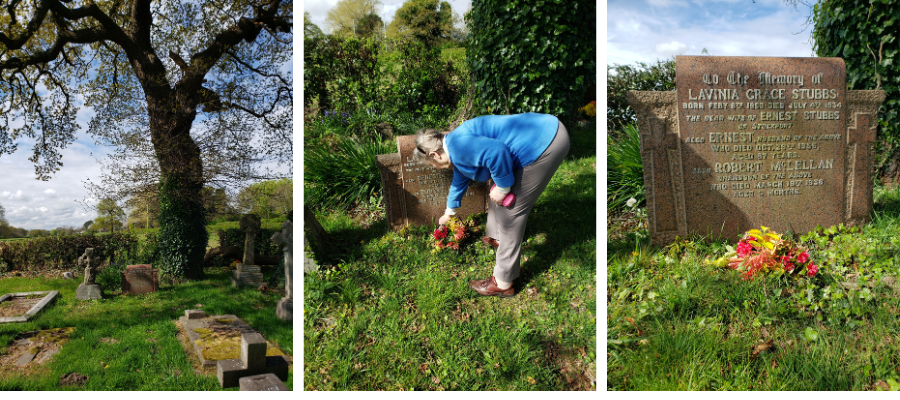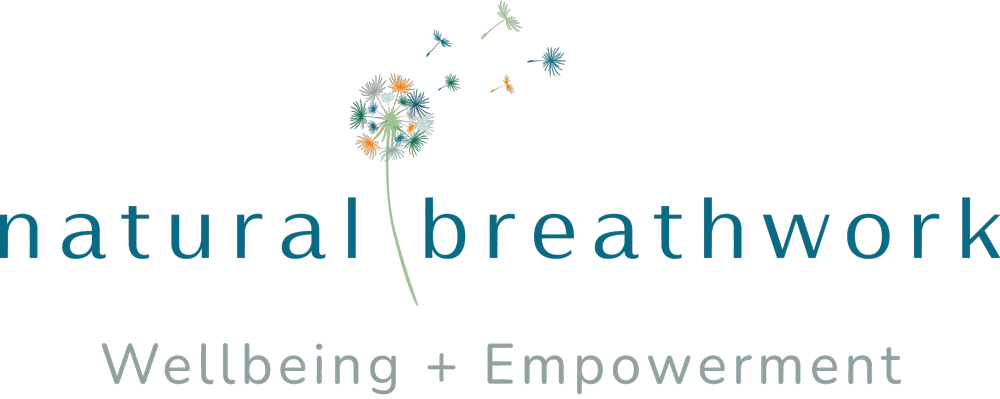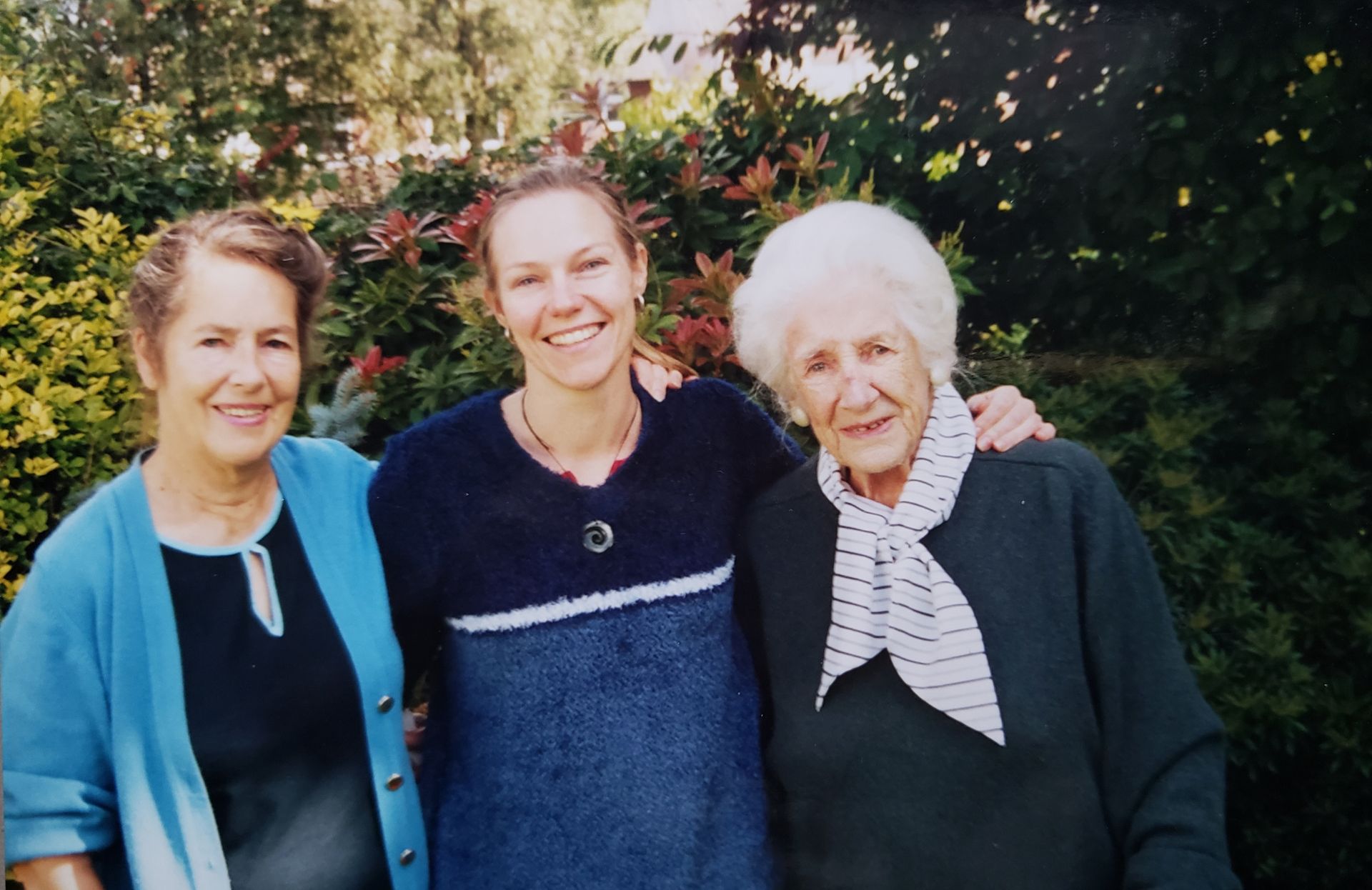Breathwork as a tool to release energetic imprints – I was not expecting this!
Energetic imprints — the emotional and ancestral patterns we unconsciously inherit — can shape how we live, relate, and even breathe. This article shares a powerful personal story of how a breathwork journey uncovered deeply held energetic imprints and allowed space for healing, release, and reconnection across generations.
Sometimes, we don’t realise how much we’re holding until we finally exhale. We think we’re fine — functioning, coping, doing all the things. But beneath the surface, old stories and unconscious tension wait patiently to be witnessed. That day, something deep and ancestral stirred in me. I realised how much I was still pushing, striving, and trying to hold it all together alone.
At the end of March, I returned to Scotland to assist with the final integration module for the breathwork training I’d done with Breathing Journeys. I didn’t know any of the students, and arriving into their close-knit group brought up familiar wounds — the ache of being the outsider. A pattern I’ve known well.
Because of the uneven numbers, I ended up receiving breathwork too. I knew it would be powerful — I just didn’t realise how far it would reach.
The theme of receiving
From the first session, an old pattern showed up again: receiving. Despite years of healing work, it’s the one thing that’s consistently been hard for me.
In a warm-water breathwork session, I found myself completely unable to let go. Even though I’d just held space for someone else, I couldn’t drop into safety or allow myself to be supported. I felt locked in “hold it together” mode.
I know I’m not alone in this. Many women are conditioned to care, to manage, to give — often to the point of depletion. But this felt deeper than cultural programming. My body just couldn’t relax, even though my mind trusted the process.
That’s the thing: If your nervous system doesn’t feel safe, your mind can’t override it. No matter how much you believe in your affirmations or visualisations, your body will quietly grip onto what it believes keeps you safe.
Later, one of the course leaders gently invited me to say: “I am safe to receive.” I managed it, just. Then she asked me to say, “I deserve to receive.” I couldn’t. The words stuck. And then came the tears — a flood of emotion, grief, shame, and a teenage part of me who felt she had to apologise just for existing.
That moment cracked something open. Not just for me, but for the generations before me.

Was this pattern even mine – or was it an energetic imprint?
A few days later, on two separate Zoom calls, people asked if this struggle to receive might be linked to my birth or my mother. The question landed like a lightning bolt. I’d never thought of that.
For years I’d believed my wounds of unworthiness stemmed from being a sensitive, bullied child. But something deeper stirred — so I followed the thread.
I went into a self-led breathwork journey. And what unfolded wasn’t just my memory. I found myself tracing it back — to my mother’s early years, and even further. These are the energetic imprints that shape how we give, receive, and relate — often without us even knowing where they began.
In this case, when my mum was just three, her baby brother died of cot death. She remembers nothing about it, but on some deep, unspoken level, I’m sure she felt it.
My gran, like many women of her time, didn’t grieve openly. Emotions were pushed down to cope with life. But when emotions like grief are suppressed, it doesn’t just stifle one feeling — it creates a blockage that affects everything. It prevents not only the expression of sorrow, but also joy, connection, and love.
When we push down the feelings we don’t want to experience, we also shut ourselves off from the positive emotions that could otherwise flow freely. The body becomes numb, and the emotional landscape shrinks. It’s like the heart goes into lockdown, not just to protect from pain, but to prevent the fullness of life — including love, joy, and human connection — from entering.
For a young child, this emotional withdrawal from a mother figure isn’t something they can logically understand. They don’t have the maturity or language to process it. But they do have an ability to feel deeply. And when they can’t understand it, they often internalise the absence, assuming they must somehow be to blame.
What my mum likely experienced as a toddler was an emotional void she couldn’t name or articulate. My gran’s suppression of her own emotions disconnected my mum from the full spectrum of feelings that form the foundation of healthy emotional expression. It wasn’t just sadness or grief that was repressed — it was everything: love, joy, and connection. Repressing emotions doesn’t just shut down one aspect of life; it diminishes the capacity to feel deeply in general, leaving a sense of emptiness and numbness that keeps love and joy at a distance.
And just like my mum, who might have tried to overcompensate for the emotional absence she felt as a child, I also developed unconscious patterns of striving. I pushed myself to give more than I took, as if only then would I be worthy of receiving love.
What struck me deeply was the realisation that this isn’t just an emotional or mental pattern. It’s a silent, energetic thread that we inherit — a residue of unprocessed grief, suppressed emotions, and a longing for connection that never fully healed.
When I made this connection during my breathwork journey, it felt like a release — not just for me, but for the generations before me. The emotional withdrawal, the pattern of over-giving to avoid the pain of emotional abandonment, wasn’t mine to carry anymore. It was time to let it go. And the beauty of breathwork is that it creates space to release what’s been buried for far too long.

The Epigenetic Thread
Science now supports what so many of us feel intuitively. Through epigenetics, we know that unresolved trauma, emotional suppression, and chronic stress can influence how genes express themselves — and can be passed through generations.
We inherit more than eye colour or temperament. We inherit coping strategies, beliefs about what’s safe, and even our capacity to receive love and support.
And when children grow up in an environment where emotional connection is disrupted — even subtly — they form protective beliefs. Beliefs like: “I must not be a burden,” or “I’m safest when I don’t need anything.” These beliefs often become the unconscious drivers behind over-giving, perfectionism, or staying invisible.
Breathwork, especially the kind that supports somatic and emotional integration, creates space for these unconscious parts to be felt and healed. It’s not just a mental insight. It’s a full-body release — of emotion, energy, and even the chemical messengers associated with long-held beliefs.
The Body Letting Go
After that journey, my body responded. I came down with the flu — hard. I was flattened for a week: coughing, sweating, aching, barely able to think. I had nothing to give.
At first, it felt frustrating. Then I realised — this wasn’t just a virus. My body was clearing. Letting go. Releasing old peptides — the chemical signals created by repetitive emotional states. As Gregg Braden explains, these peptides shape our biological identity. When we shift the underlying beliefs, we flush them out — often quite literally.
Even my mum came down with the same bug at the same time while my dad stayed completely well. It made me wonder: had we released something from our lineage?

Remembering Robert
One thing that struck me was how my uncle Robert — the baby who died — was never really spoken of. Not a secret, exactly, but never included in family stories or records. As the photo-keeper of the family I never saw a picture of him, I hadn’t known his name and he wasn’t even part of a recent family tree project.
It’s as though his memory had been quietly erased — as if his life had no real value.
And yet,his passing may have left one of the deepest energetic legacies in our family.
So the other morning, I wanted to honour him and bring him back into the family history. To say:
You mattered. You were loved. You were impactful. Your brief life left ripples that are still felt today. You were worthy of being seen, known, remembered.
My mum knew that he’d been buried in the churchyard, along with his maternal grandparents, near where she grew up, not far from where we live now. So after telling her some of what I’ve mentioned above, I invited her to join me to visit the grave and leave some flowers.
We left home in cool drizzle from grey skies, but by the time we’d made the short drive to the church, it was a warm, sparkling spring morning. I saw the grave straight away, under a beautiful oak tree, and we spent some time talking about Robert, my gran and grandad and his grandparents – Lavinia and Ernest.
It was sad to discover that my gran also lost her own mother three months before giving birth to my mother – her first child after having experienced a number of miscarriages.
So much loss in my maternal line, and I never knew about it until now. But I left feeling peaceful, and that we’d reclaimed Robert back into our family story.
Reclaiming My Right to Receive
I’m not “through” this. But I’m more aware. More open. And more committed to not overriding my needs as I continue to process. It’s quite an upheaval when you discover your life-long identity was built on false beliefs!
Maybe you see yourself somewhere in this story. Maybe there’s a part of you that also struggles to receive, always puts others first, always doing, never quite stopping, feeling the weight of something old or stuck.
If so, I want you to know: you’re not alone, and the pattern might not have started with you. That’s not an excuse — it’s an invitation. To meet yourself with compassion. To gently let go of what was never yours. And to remember that healing isn’t just about feeling better — it’s about remembering who you really are underneath it all.

To all of us who’ve ever felt unseen, unworthy, or like we didn’t belong — you are valuable. You are enough. You don’t need to prove your worth. You don’t need to justify your existence. You just are.
And that’s more than enough.
✨ Whether it’s perfectionism, self-sabotage, procrastination, or simply a sense that you’re ready for something to shift… breathwork can help.
I offer complimentary calls to explore what support might look like for you. There’s no pressure — just a space to connect, get clarity, and take a breath.
👉 Click here to book a free clarity call
Let’s explore what’s possible when you’re not holding it all alone.
If something in this article resonates with you, do leave a comment below and share with someone who you feel might need to read it.


0 Comments